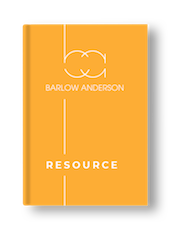
When you think of a guardian, you likely think of a child’s parents. But did you know that an incapacitated adult can also have a guardian? Courts can appoint a person or even an institution to make decisions for an adult who is not capable of making decisions for him- or herself. In a guardianship, the person who is incapacitated is referred to as the “respondent or ward.”
Guardian vs. Conservator in Alaska
In Alaska, when you are appointed as someone’s guardian, your appointment may also automatically include their conservator authority, which is typically called a full guardian. However, being appointed solely as someone’s conservator does not also make you that person’s guardian. If the appointment of different people is sought to serve as guardian and conservator, special arrangements would have to be made. Conservatorship specifically refers to the duty of making the incapacitated person’s financial decisions on their behalf.
What kinds of decisions does a guardian and conservator make?
A guardian makes the ward’s decisions relating to housing (where they will live and in what conditions), day-to-day care and health care, and legal rights. If the court has not appointed a separate conservator, the guardian will make decisions about managing the ward’s money and property.
An easy way to think of this is that an adult ward’s guardian would be responsible for making the same decisions that a child’s guardian would be expected to make. The big difference is that an adult’s guardian is not obligated to use his or her own money to provide for the ward and is not personally liable for any harm the ward might do.
How is a guardianship or conservatorship established?
When someone thinks that their friend or family member is no longer capable of caring for him- or herself, they can file a petition for guardianship or conservatorship. Then, it is up to the court to determine the person is truly incapacitated, and whether the person who filed the petition is an appropriate guardian/conservator.
Alaska law outlines the priority a court must consider in appointing a guardian/conservator. Alaska law gives the highest preference to someone nominated by the ward, followed by a friend or family member as a guardian or conservator. If those with a higher priority are not available or willing to serve, the courts can appoint a private professional guardian, if the ward has the resources to pay for a private professional, or the public guardian. The guardian/conservator cannot be anyone who has or would have an interest to serve, like a creditor.
Where can I find more information about guardianships?
Is your loved one incapacitated and in need of help? At Barlow Anderson LLC, we have extensive experience helping our clients navigate these situations and establish legal guardianships and conservatorships. To learn more about how we can help you, give us a call at (907) 375-0750. We look forward to hearing from you!


